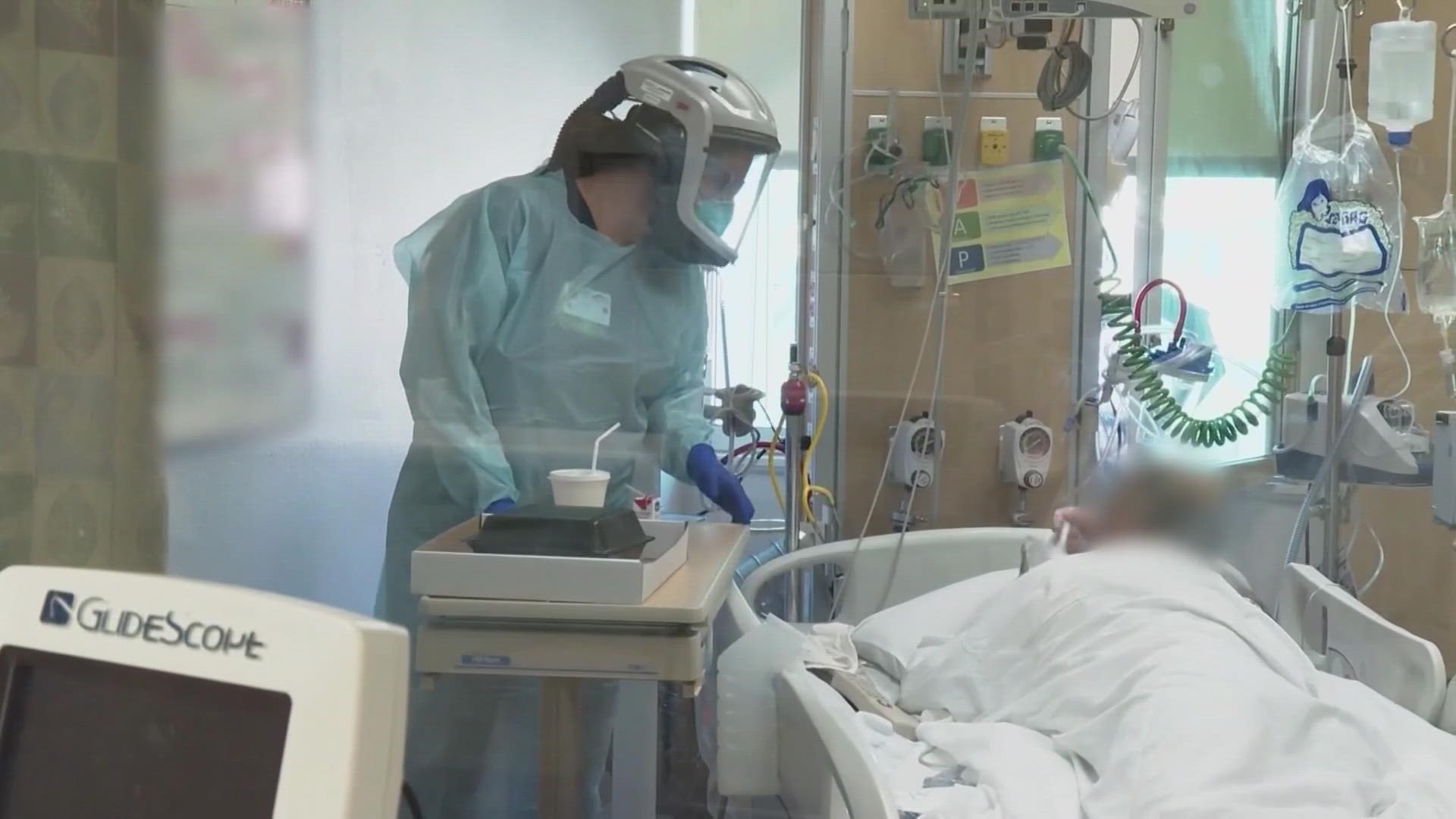SPOKANE, Wash. — In a visit to Spokane's Teaching Health Center Wednesday, Rep. Cathy McMorris Rodgers heard directly from future doctors about what they're seeing and what they need.
Joining the congresswoman was Carole Johnson, the administrator for the Health Resources and Services Administration (HRSA), which works with Congress to fund and implement Teaching Health Center Graduate Medical Education (THCGME) programs across the country.
"How do we get people to stay in primary health care?" Johnson asked the seven clinic residents at the roundtable meeting.
"Bottom line, we have a critical need now for anyone to go into health care," McMorris Rodgers said.
The teaching center is one of 72 across the country that trains physicians in a hospital setting. Residents at Spokane's facility say they need more help.
"Again, going back to the support staff, it's not just having increased physicians, but having increased number of social workers, pharmacists," said Kelsie Smith, a third-year family medicine resident.
A poll released last week found that among nearly 1,200 members of three Washington health care unions, almost half say they'll leave their job in the next few years.
KREM 2 asked Congresswoman McMorris Rodgers what can be done to retain and support health care workers.
"This is a huge issue and even before COVID we knew we had an aging workforce," she said. "In addition, just the strain that's been put on anyone in health care. I've heard too many stories of those who've decided to leave."
McMorris Rodgers says funding and expanding teaching health centers like Spokane's are a key to addressing the issue of a declining health care workforce.
The congresswoman's visit coincides with the regular review of the program. If Congress doesn't reauthorize the program by September 30, the STHC says it will have to reduce its class of 2024.
A major focus of the training center is to recruit medical residents from the area and keep them working in eastern Washington after graduation, especially in rural and under-served communities.
One issue residents reported to McMorris Rodgers and Johnson is the low pay for primary care doctors, who are also often overburdened by the administrative work that comes with the job.
"Even when you're not looking at your inbox, whether it's a Saturday or Sunday, things are slowly building up and adding on there," said Aditya Nathan, a third-year internal medicine resident. "The work's never truly complete, you're never caught up in primary care."
Seth Dotson, another internal medicine resident, says many students are swayed away from primary care practice to work in large hospital settings where they don't have to deal with that workload and also make more money.
That same health care worker poll showed short-staffing, low pay and workplace safety are among the top reasons workers are considering quitting. Around 80% report they're burnt out.
McMorris Rodgers says she'll take what she heard back to D.C. to push for more support for health care workers in eastern Washington.
"The need to not only continue to fund this program but continue to look at how we can expand residencies is going to be top of mind," she said.
DOWNLOAD THE KREM SMARTPHONE APP
DOWNLOAD FOR IPHONE HERE | DOWNLOAD FOR ANDROID HERE
HOW TO ADD THE KREM+ APP TO YOUR STREAMING DEVICE
ROKU: add the channel from the ROKU store or by searching for KREM in the Channel Store.
Fire TV: search for "KREM" to find the free app to add to your account. Another option for Fire TV is to have the app delivered directly to your Fire TV through Amazon.
To report a typo or grammatical error, please email webspokane@krem.com.

